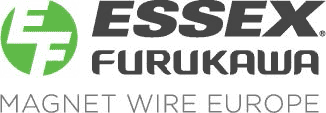By Ed Richardson – Thomas & Skinner / USMMA
Last month, the House of Representatives passed the 2014 National Defense Authorization Act (NDAA), including many high-profile provisions such as detainee policy, sexual assault prevention, and budget totals. However, it is a low-profile piece of the bill that could have some distributors of small but vital magnets and metals, particularly those sold to unsuspecting US defense contractor, sweating over the coming year.
The bill report issued by the House Armed Services Committee (HASC) notes a little-known issue deep within the supply chain of the F-35 Joint Strike Fighter. According to the committee, the Department of Defense (DoD) issued waivers that allowed distributor-fabricators to introduce noncompliant high-performance magnets into the F-35 supply chain despite the law and Congress’s direction to facilitate competition and guarantee a secure supply chain.
The HASC acted to bring accountability to this issue by requiring the Government Accountability Office (GAO), Congress’ non-partisan investigative office, to evaluate the waivers and compliance standards. At the request of Congress, the GAO constructs audits, evaluations and reports to improve the performance and accountability of the federal government. The HASC requirement instructs the GAO to specifically review compliance of the DoD waivers with the Specialty Metals Clause, a law that, as a general matter, requires critical metals for defense applications be purchased domestically. In the past, supply chain compliance reviews have focused on large defense contractors; but, this latest investigation will attempt to go to the root of the problem and hold distributors and fabricators of non-compliant magnets accountable for noncompliance.
The HASC expressed particular concern about DoD’s decision to issue the waivers despite knowing that three compliant suppliers exist and already provide magnets to DoD. Therefore, the congressionally mandated investigation is designed to determine whether the distributor-fabricators also knew of these compliant sources and knowingly and/or willfully supplied the noncompliant magnet parts to subcontractors for inclusion in the F-35 program. Additionally, if infractions to the Specialty Metals Clause are found, the committee requires the GAO to recommend consequences for the distributor-fabricators such as “consideration of previous noncompliance on future contracts, fines by non-compliant lower-tier suppliers, or suspension and debarment.”
This investigation should improve supply chain management at DoD. The Department and Congress have previously expressed concern over the opacity of the defense supply chain, evidenced by plagues of counterfeit parts, material shortages, and costly production delays. Deeper visibility into the depths of the Defense supply chain is required for effective national security: lack of visibility invites needless risk. With the rise and prevalence of sophisticated cyber warfare and foreign nations overtly manipulating commodity markets, the supply chain remains an area of asymmetric vulnerability for DoD. This investigation is therefore a welcome initiative and precedent for effective oversight and supply chain management that will provide DoD with additional insight and incentive to secure the defense industrial base.
 About the Author
About the Author
Ed Richardson is vice president of Thomas & Skinner, and president of the United States Magnetic Materials Association (USMMA). He has more than 18 years of experience in industrial manufacturing and business-to-business marketing. He has a B.A. from DePauw University, where he was a Management Fellow. He also has an M.B.A. from Indiana University’s Kelly School of Business. Mr. Richardson has written numerous articles on rare earth supplies and their impact on the US magnet industry. He has been quoted in an array of news publications and media outlets, including The New York Times, The Washington Post, The Wall Street Journal, US News and World Report, The Financial Times, Bloomberg Business Week and NPR.



